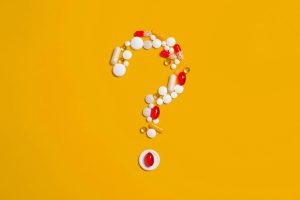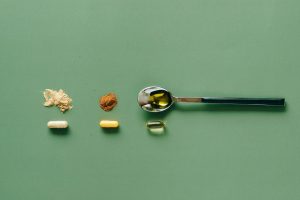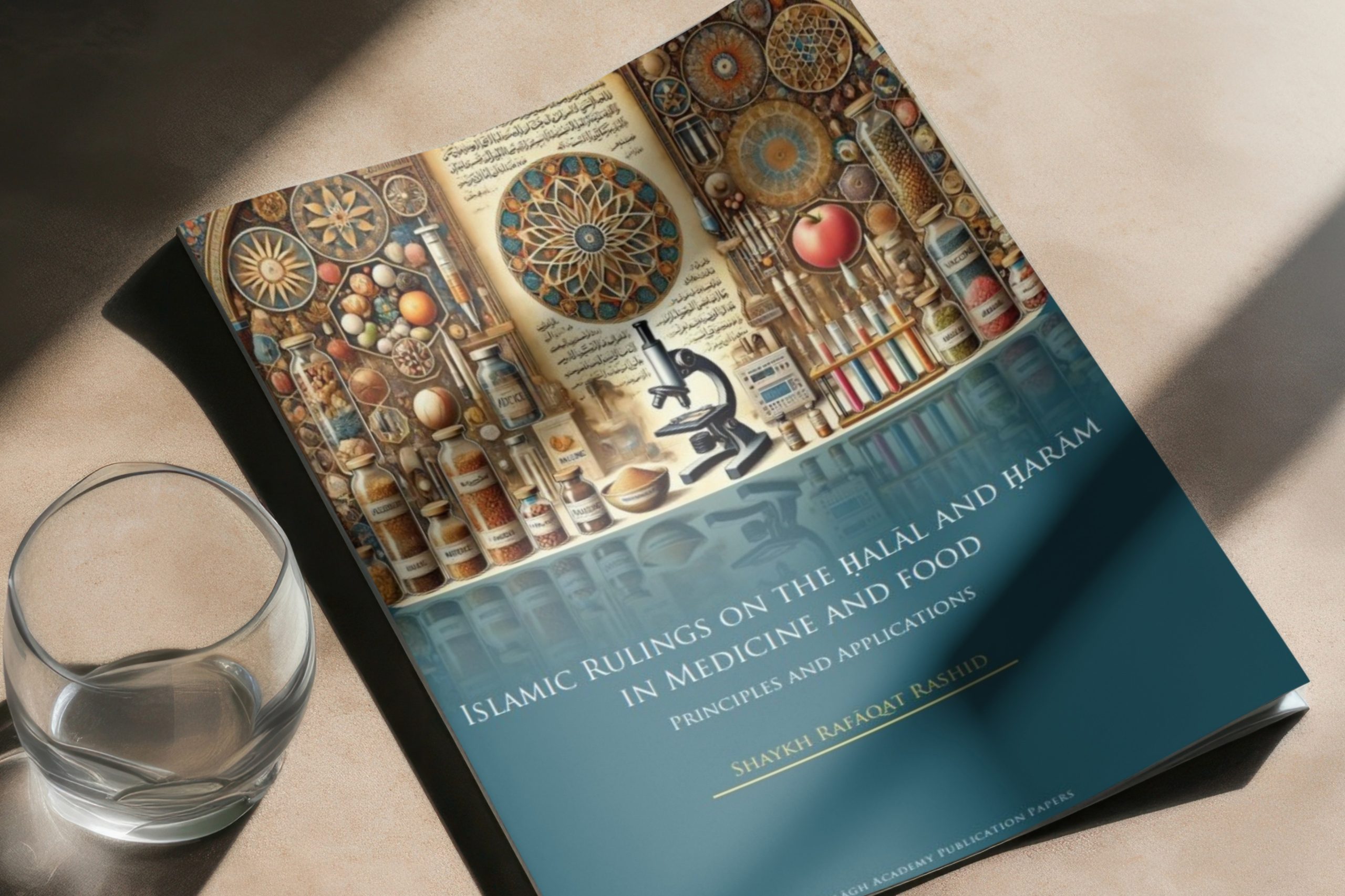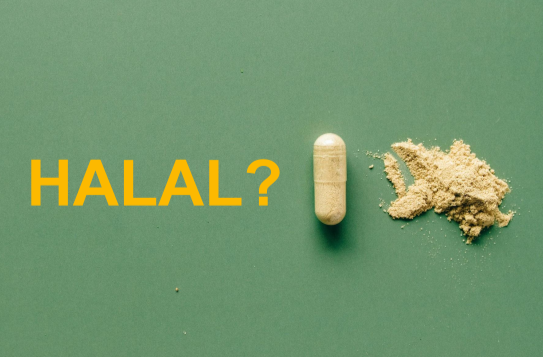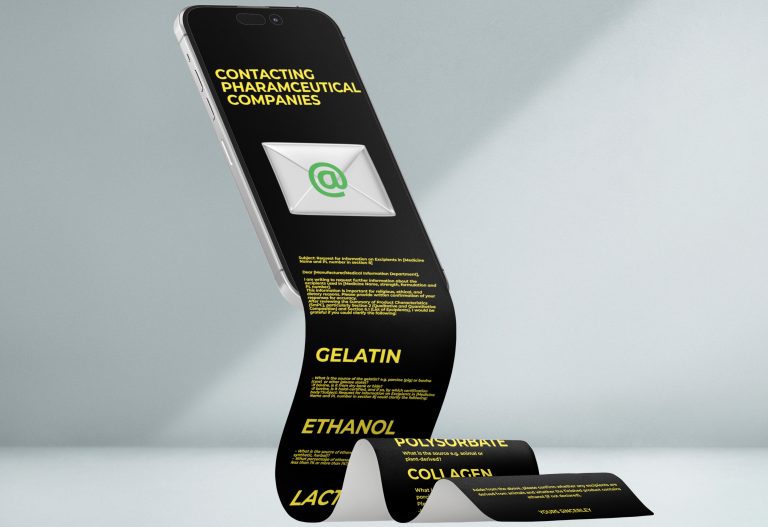Stearic in medicines
This resource explains the use of stearic acid in medicines and outlines the Islamic rulings on its permissibility.
What is stearic acid and how is it used in medicines?
Stearic acid is a saturated fat.1
Stearic acid can be sourced from plants and animals.1 2 In practice, most of the stearic acid used today in medicines are found to be from plant sources rather than animal sources.
Sources are:
Stearic acid is an excipient (inactive ingredient) used to make medicinal tablets, capsules and powders.2 Stearic acid is used as:
- A lubricant in capsules and tablets – to prevent the ingredients inside the capsule from sticking to each other and to the machine used to make them
- A binder in tablets
- An emulsifier and solubilizer in topical creams and ointments
- A release agent – to delay the breakdown and absorption of medicines until it reaches the correct area of the bowel2
🕌 Islamic ruling on stearic acid
| Source | Ruling (Hanafi,Maliki, Shafiʿi and Hanbali) |
|---|---|
| Plant | ✅ Halal |
| Bovine (cow) Islamically slaughtered | ✅ Halal |
| Bovine (cow) non-Islamically slaughtered | ❌Haram |
In summary, according to the four schools of thought (Hanafi, Maliki, Shafi’i and Hanbali):
- Halal → stearic acid derived from plant or Islamically slaughtered cows
- Haram → stearic acid derived from tallow, which is the fat from non-Islamically slaughtered cows. 6
If you are unsure about taking or using medicines containing ingredients and/or excipients from haram sources, seek guidance from a practising Muslim HCP such as a pharmacist or doctor. Alternatively, consult your local Imam or a trusted Islamic scholar, ideally one who has knowledge and expertise in the fiqh (Islamic rulings) of medicine.
💭Did you know?
Even if a medicine contains an ingredient/excipient from a haram source, it may still be permitted in certain cases. Here are three Islamic maxims (principles):
- Medical need or necessity (hajah and darurah): Under this principle, if there is a medical necessity, such as an emergency situation, or where there is a strong chance the individual’s health will deteriorate, and if no viable halal alternative is available, then it is permitted to take a medicine containing stearic acid derived from haram sources, until a viable halal alternative becomes available.
- An impermissible medicine becomes permissible if five conditions are fully met (click here to learn what the five conditions are).
- Hardship begets facility (al-mashaqqa tajlib at-taysir): Under this principle, if applying religious practice becomes too burdensome or creates hardship, then leniency can be applied to ease it (Click here to read more). If you have tried your best to seek an alternative halal medicine and it becomes too difficult for you, this principle allows you to take/use the medicine you have been prescribed/supplied.
⚠️ Important information for patients
- Always take or use your medicine(s) exactly as directed or prescribed by your healthcare professional (HCP), such as your doctor or pharmacist
- Do not stop, delay, change or alter the way you take or use your medicine(s) without first discussing it with the HCP who prescribed or supplied it to you
- Always consult your HCP if you have any questions or before making any decisions about your treatment
- For Islamic guidance, seek advice from your local Imam or a trusted Islamic scholar – ideally someone with relevant knowledge and expertise in the fiqh (Islamic rulings) of medicines
- Use the information gathered to make an informed decision together with your HCP and, if needed, your local Imam or trusted Islamic scholar.
FAQs
Disclaimer
- This resource is for educational purposes only. It does not constitute clinical, medical, or professional healthcare advice and should not replace individual clinical judgement or qualified religious guidance
- Always consult your doctor, pharmacist, or other healthcare professional regarding your own medical conditions or for advice on treatment options
- Healthcare professionals remain fully responsible and accountable for decisions made within their own scope of practice.
References anf further resources
- Drugs.com (2018). Stearic Acid. [online] Drugs.com. Available at: https://www.drugs.com/inactive/stearic-acid-77.html. ↩︎
- Pharma Excipients. (2024). Introduction to Stearic Acid as a pharmaceutical Excipient. [online] Available at: https://www.pharmaexcipients.com/stearic-acid-excipient/. ↩︎
- Islamic Perspective on Stearic Acid by Shaykh Dr Rafaqat Rashid ↩︎


